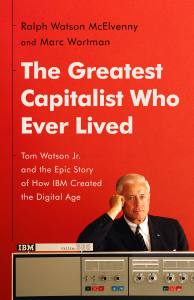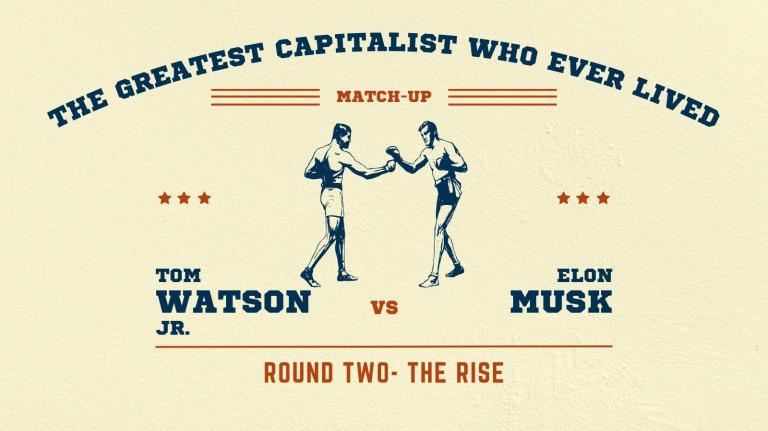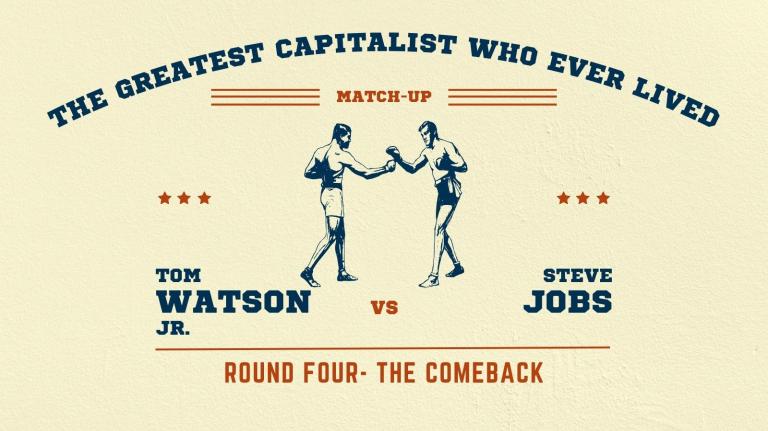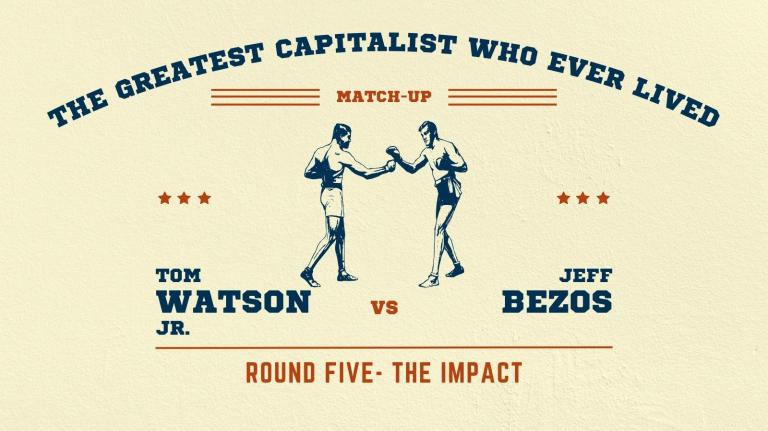The Greatest Capitalist Match-Up Round 1: Auspicious Beginnings
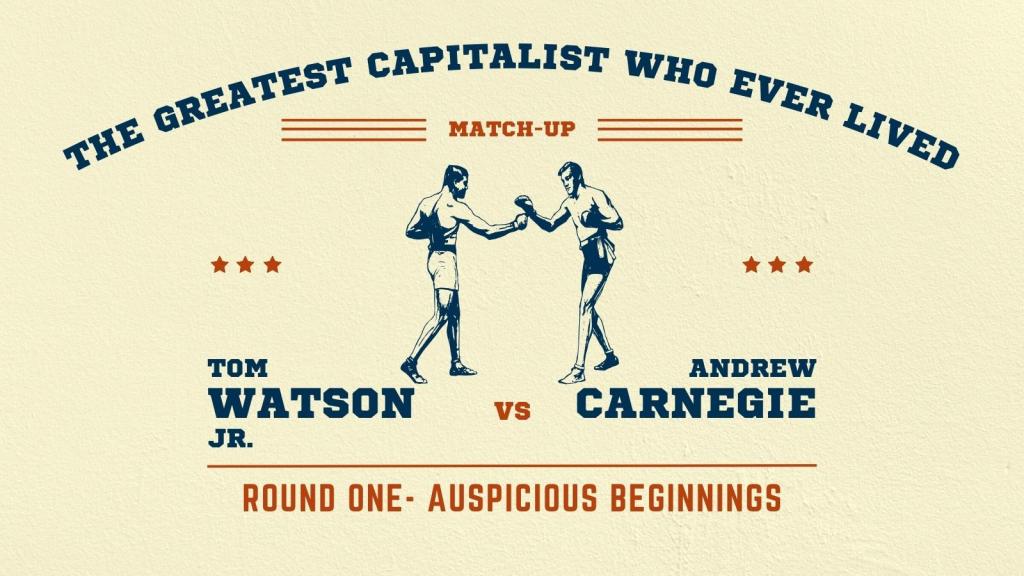
In their latest book, Ralph Watson McElvenny and Marc Wortman explore a bold argument: that Thomas J. Watson Jr., the second president of IBM, was the greatest capitalist who ever lived. McElvenny, the oldest grandson of Watson, and Wortman, an independent historian and freelance journalist, chronicle how Watson undertook the “biggest gamble in business history” and ultimately laid the foundation for the information revolution.
The Greatest Capitalist Who Ever Lived: Tom Watson Jr. and the Epic Story of How IBM Created the Digital Age makes a powerful case, but is it accurate? To find out, we’re stacking Watson up against some of history’s greatest titans of industry. In this five-part mini-series, he’ll compete against Tesla founder and X CEO Elon Musk, Carnegie Steel founder Andrew Carnegie, Amazon founder Jeff Bezos, Apple co-founder Steve Jobs, and Facebook founder Mark Zuckerberg.
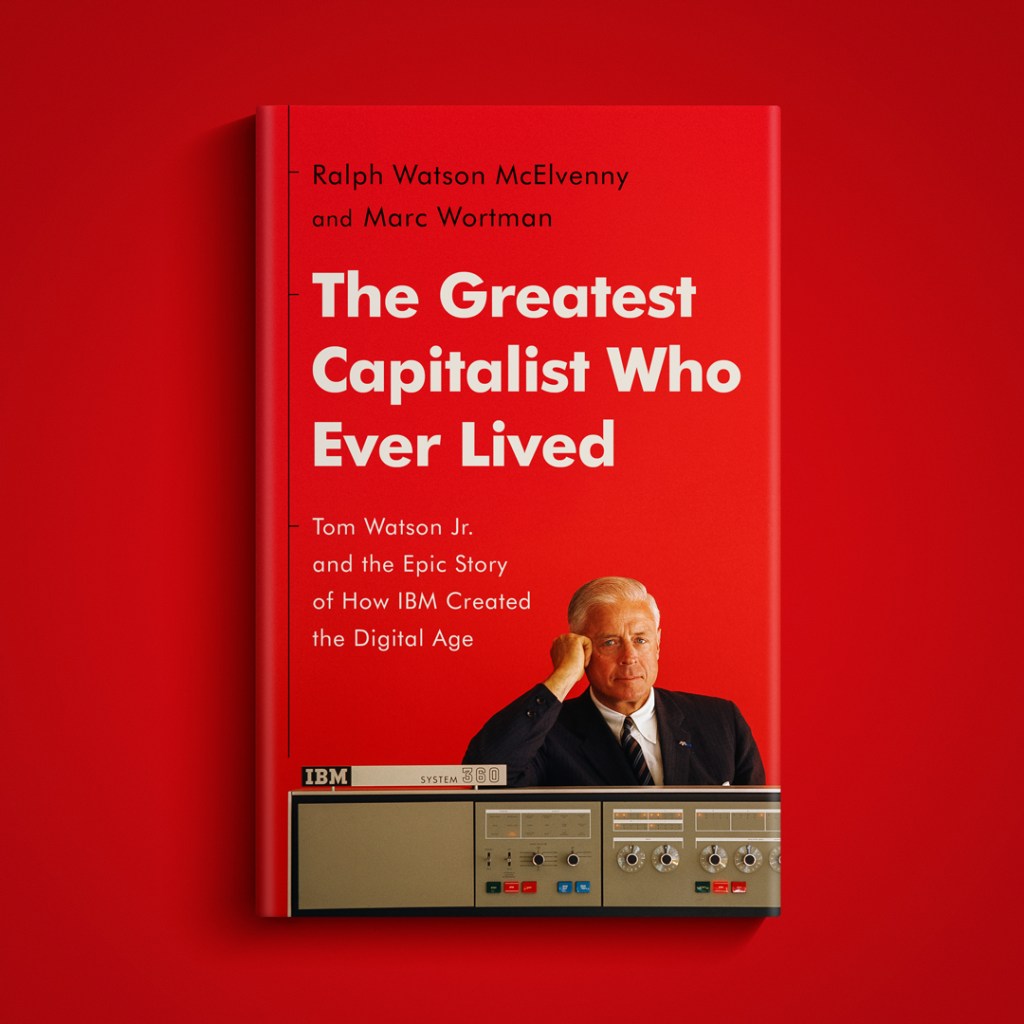
In today’s match-up, we’re looking at a critical part of every capitalist’s biography: childhood. Watson goes toe-to-toe with Carnegie over who had the most auspicious beginnings.
Contender #1: Tom Watson, Jr.
Watson grew up in a financially comfortable but emotionally turbulent home. His father, Thomas Watson Sr., was president of IBM and rarely around the house. Still, his larger-than-life presence loomed over everything the young Watson did. As McElvenny and Watson write, “The young Tommy responded to his domineering, business-prophet father with teenage rebellion, outlandish and sometimes dangerous pranks, then dark periods of gloominess and finally frightening, recurring bouts of major depression.”
Watson was forced to dress in suits modeled after his father’s, and he often destroyed them. He played with fire, shot animals in the nearby swamps, and stole from his neighbors. He typically got Cs and Ds in school and even poured skunk oil into the main furnace vent of his high school so that classes would be canceled. Residents of his affluent New Jersey suburb took to calling him Terrible Tommy Watson, and he took six years and three high schools to graduate (at age nineteen).
It was only through Watson Sr.’s influence that Jr. was able to attend Brown University, and even then it was iffy. “He’s not very good,” the dean commented when the two men asked for Tommy to be admitted, “but we’ll take him.”
Contender #2: Andrew Carnegie
Carnegie started on the opposite end of the privilege spectrum. He was born in Scotland in 1835 and lived in a cottage with just one main room. His parents sold that home to afford the voyage to the United States, and they settled in a suburb of Pittsburgh, where they lived in a tiny apartment above a weaver shop. To help support his family, Carnegie worked in a cotton mill making $1.20 a week and then became a messenger for a telegraph company and a secretary for the Pennsylvania Railroad.
When Carnegie’s boss approached him about buying shares in an investment company, Carnegie convinced his mother to mortgage their house to raise the $500 he needed. After that Carnegie made more wise investments, first in sleeping train cars and then in oil wells, and eventually he would come to control the largest steel empire in American history.
Decision: Carnegie. Watson’s terror-to-titan story is a surprising one, but we love a good rags-to-riches tale, and Carnegie’s is perhaps the greatest of all time. At his first job, he earned $1.20 per week, and at his peak, he was worth $380 million — about $309 billion when adjusted for inflation.
The Score: Watson – 0, Other Capitalists – 1
